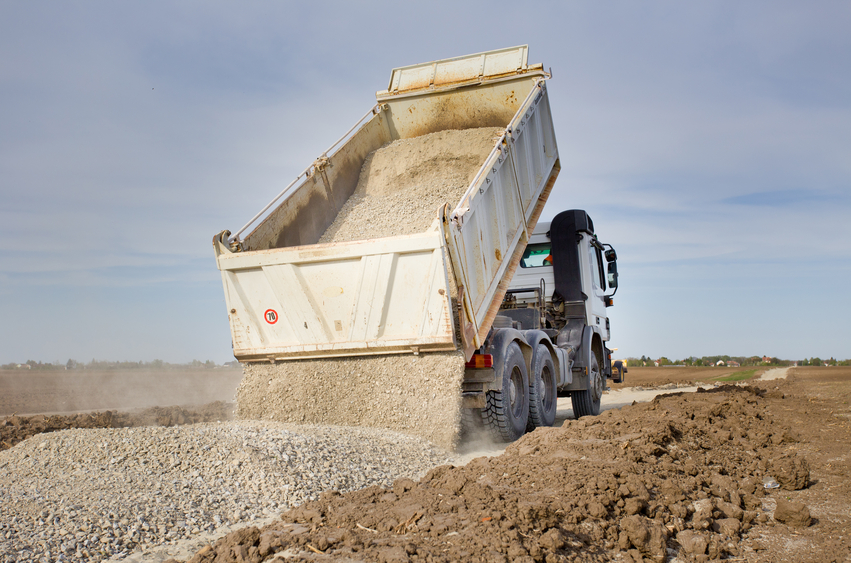Geotechnical Engineering 24 PDH Discount Package 1
Slope Stability (G04-001)
Soil Mechanics: Deformation (G05-003)
Soil Mechanics: Stress and Strain (G05-002 )

This online engineering PDH course presents the guidelines for calculation of the bearing capacity of soil under shallow and deep foundations supporting various types of structures such as buildings and houses, towers and storage tanks, fills, embankments and dams. These guidelines may be helpful in determining soils that will lead to bearing capacity failure or excessive settlements for given foundations and loads.
Bearing capacity is the ability of soil to safely carry the pressure placed on the soil from any engineered structure without undergoing a shear failure with accompanying large settlements. Applying a bearing pressure which is safe with respect to failure does not ensure that settlement of the foundation will be within acceptable limits. Therefore, settlement analysis should generally be performed since most structures are sensitive to excessive settlement.
This 10 PDH online course is applicable to civil, structural and geotechnical engineers, as well as design and construction personnel who are involved with foundation investigation and design.
This PE continuing education course is intended to provide you with the following specific knowledge and skills:
- Understanding the failure modes and other factors that influence the bearing capacity
- Knowing the non-load related design considerations due to environmental and geotechnical conditions
- Familiarizing with the laboratory and in situ methods of determining soil parameters required for analysis of bearing capacity
- Analyzing the bearing capacity of shallow and deep foundations
In this professional engineering CEU course, you need to review the US Corps of Engineers Publication EM 1110-1-1905, "Bearing Capacity of Soils".
Upon successful completion of the quiz, print your Certificate of Completion instantly. (Note: if you are paying by check or money order, you will be able to print it after we receive your payment.) For your convenience, we will also email it to you. Please note that you can log in to your account at any time to access and print your Certificate of Completion.

This online engineering PDH course provides guidance for analyzing the static stability of slopes of earth and rock-fill dams, slopes of other types of embankments, excavated slopes, and natural slopes in soil and soft rock.
Slope stability criteria are presented for strength tests, analysis conditions, and factors of safety. The criteria are intended to be used with methods of stability analysis that satisfy all conditions of equilibrium. Methods that do not satisfy all conditions of equilibrium may involve significant inaccuracies and should be used only under the restricted conditions described herein.
This 4 PDH online course is applicable to geotechnical and structural engineers, as well as design and construction personnel working on projects involving slope stability analysis.
This PE continuing education course is intended to provide you with the following specific knowledge and skills:
- Aspects applicable to all load conditions
- Analyses of stability during and at the end of construction
- Analyses of steady-state seepage conditions
- Analyses of sudden drawdown stability
- Analysis of stability during earthquakes
- Design criteria for existing and new embankments
- Design criteria of other slopes
- Presentation of various types of analysis and results
In this professional engineering CEU course, you need to review Chapters 1 through 4 of the US Corps of Engineers Publication EM 1110-2-1902, "Slope Stability".
Upon successful completion of the quiz, print your Certificate of Completion instantly. (Note: if you are paying by check or money order, you will be able to print it after we receive your payment.) For your convenience, we will also email it to you. Please note that you can log in to your account at any time to access and print your Certificate of Completion.

This online engineering PDH course, as a part of soil mechanics series, covers basic theories and practical controls of deformation in soils. Human beings have been building structures on, in, and with soils for centuries, and the principles of soil mechanics have been used for a long time, whether they were theorized or not.
Soil consists of three phases of solid, liquid and gas. In engineering, the interaction of these three phases dominates soil behavior in response to applied loads. Because of the three-phase composition, soils exhibit complex states of stress and strain (deformation). A key task in the design and construction of facilities on, in, and with soils is proper quantification of these states of stress, and their corresponding strains (deformations).
This 5 PDH online course is applicable to geotechnical, civil, mining, structural, and environmental engineers, as well as design and construction personnel involved with the planning, design, and construction of building structures on, in, and with soils.
This PE continuing education course is intended to provide you with the following specific knowledge and skills:
- Understanding typical deformation problems in approach roadway
- Learning about the basic theories and computations of deformations including:
- immediate settlement
- consolidation settlement (long-term settlement)
- lateral movement (squeeze) of soft soils
- Understanding the application of soil mechanics to design in deformation control including:
- reduction of settlement magnitude
- reduction of settlement time
In this professional engineering CEU course, you need to review Chapter 7, Approach Roadway Deformations of the Federal Highway Administration "Reference Manual Volume I, SOILS {C}AND FOUNDATIONS", Publication No. FHWA NHI-06-088.
Upon successful completion of the quiz, print your Certificate of Completion instantly. (Note: if you are paying by check or money order, you will be able to print it after we receive your payment.) For your convenience, we will also email it to you. Please note that you can log in to your account at any time to access and print your Certificate of Completion.

This online engineering PDH course, as a part of soil mechanics series, covers basic theories and practical applications of stress and strain in soils. Human beings have been building structures on, in, and with soils for centuries, and the principles of soil mechanics have been used for a long time, whether they were theorized or not.
Soil consists of three phases of solid, liquid and gas. In engineering, the interaction of these three phases dominates soil behavior in response to applied loads. Because of the three-phase composition, soils exhibit complex states of stresses and strains. A key task in the design and construction of facilities on, in, and with soils is proper quantification of these states of stress, and their corresponding strains.
This 5 PDH online course is applicable to geotechnical, civil, mining, structural, and environmental engineers, as well as design and construction personnel involved with the planning, design, and construction of building structures on, in, and with soils.
This PE continuing education course is intended to provide you with the following specific knowledge and skills:
- Understanding the soil phase diagram and basic volume-weight relationships
- Learning about the basic theories of soil mechanics, including:
- effective stress, consolidation
- Mohr-Coulomb (M-C) failure criterion
- Rankine active and passive failure zone theories
- Understanding the application of soil mechanics to design and construction in evaluating:
- volume-weight properties
- effective overburden stresses
- depth of major stress bulb
- 2:1 stress distribution
- soil shear strength as defined by M-C criterion
In this professional engineering CEU course, you need to review Chapter 2, Stress and Strain in Soils of the Federal Highway Administration "Reference Manual Volume I, SOILS {C}AND FOUNDATIONS", Publication No. FHWA NHI-06-088.
Upon successful completion of the quiz, print your Certificate of Completion instantly. (Note: if you are paying by check or money order, you will be able to print it after we receive your payment.) For your convenience, we will also email it to you. Please note that you can log in to your account at any time to access and print your Certificate of Completion.